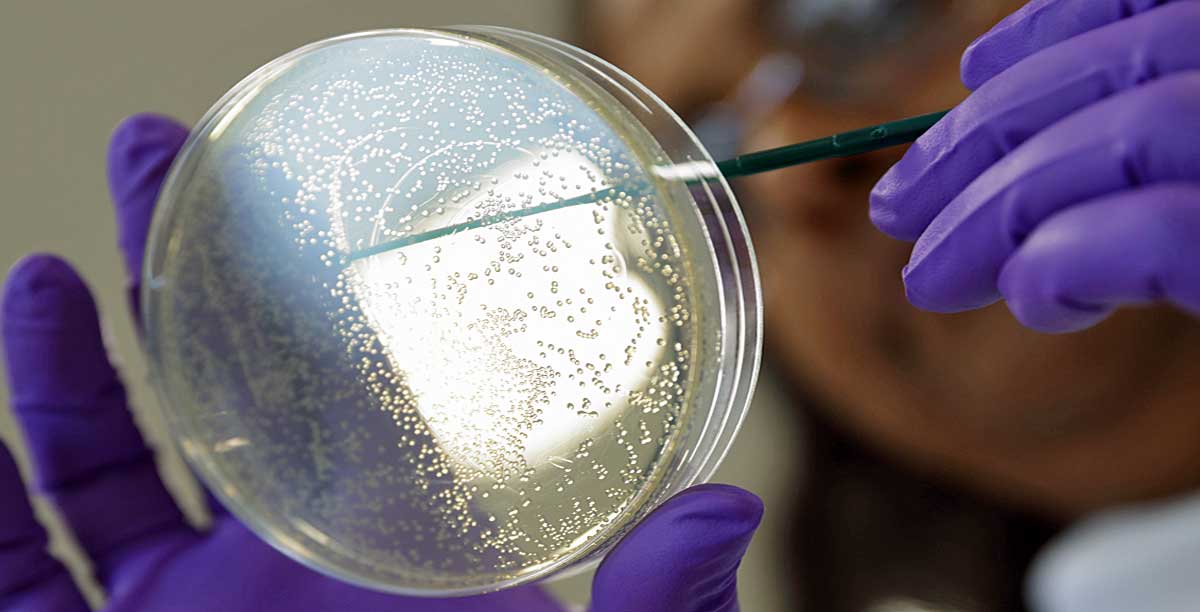A new approach to identifying antibacterial drug targets
With the rapid increase in multi-drug-resistant (MDR) gram-negative bacteria, it’s clear that our existing antimicrobial tools are no longer fit for purpose.
In January 2019, the UK Government announced plans to cut the inappropriate use of antibiotics as well as reduce drug-resistant infections, with a 20-year vision for a world in which antimicrobial resistance is contained and controlled by 2040.
This is a global problem and the search for new antibiotics requires us to rethink the way we approach both the research and the funding of drug discovery in this area. LifeArc is dedicated to accelerating the translation of innovation into new therapies and diagnostics to address antimicrobial resistance.
New and novel response
An issue as big as antimicrobial resistance demands that we create effective partnerships with academic institutes, charities, companies and philanthropists around the world – sharing the expertise of people and organisations who are already driving research forward.
One such collaboration is with the AMR Centre (AMRC) which is leading the UK’s response to the global health threat posed by antimicrobial resistance with a fully-integrated development capability, offering translational R&D from pre-clinical hits through to clinical proof of concept.
LifeArc is a leading partner contributing to a £2.3million package to support the AMRC’s expansion of a pipeline of new drugs to treat drug-resistant infections. This fits as part of our priority focus on accelerating the development of new antibiotics and diagnostics from lead optimisation, through to clinical proof of concept and beyond.
Commonalities across multiple pathogens
Until now, the majority of antibacterial drug discovery programs have focused either on very specific aspects of resistance, or just a single pathogen.
Since 2017, we have been collaborating with Canada’s Centre for Drug Research and Development (CDRD) and the UK’s Defence Science and Technology Laboratory (Dstl) to explore features that are common across a number of pathogens.
By taking a more holistic approach, the partnership with CDRD and Dstl is looking at commonality across pathogens to identify which genes or “targets” express proteins that lead to the production of multi-drug resistant bacteria and are therefore the most promising from a biophysical and drug discovery-based perspective.
Identify and validate new findings
These collaborations aim to identify and scientifically validate the most encouraging areas for research to support new therapies for serious drug resistant infections.
As an independent medical charity, our approach is to bring together that expertise and advance promising research towards clinical use. We will continue to work closely with these and a range of partners to address unmet medical need.
For further information on collaborating on drug discovery with us, please get in touch with our drug discovery team.

